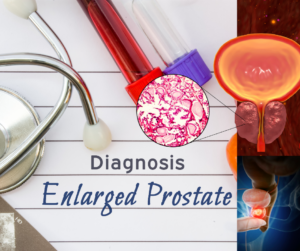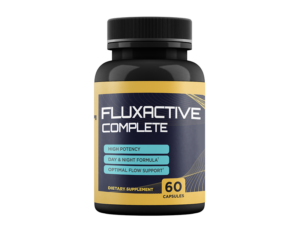An enlarged prostate or benign prostatic hyperplasia is a common health issue among middle-aged men. In this article, you will discover 10 simple steps on how to cope with this problem.
What is BPH or Enlarged Prostate?
You can do a lot to take care of yourself and give your body what it needs. Still, as you get older, your body changes in ways you can’t always control. For most men, one of those changes is that the prostate gets bigger.
It’s a natural part of aging, but at some point, it can lead to a condition called BPH, or benign prostatic hyperplasia.
Your prostate surrounds part of your urethra, the tube that carries urine and semen out of your penis. When you have BPH, your prostate is larger than usual, which squeezes the urethra. This can cause your pee stream to be weak, waking you up a lot at night to go to the bathroom. It also could lead to other bothersome urinary symptoms.
The good news is, BPH isn’t prostate cancer and doesn’t make you more likely to get it.
It’s a common condition, especially in older men, and there are a lot of treatments for it, from lifestyle changes to medication to surgery. Your doctor can help you choose the best care based on your age, health, and how the condition affects you.
What Causes an Enlarged Prostate?
Doctors aren’t sure exactly what makes this happen. It may have to do with normal hormonal changes as you age, but it’s not clear.
Early in puberty, your prostate doubles in size. Later in life, at around age 25, it starts to grow again. For most men, this growth happens for the rest of their lives. For some, it causes BPH.
With age, the prostate gland may enlarge, causing it to press on the bladder and urethra. This leads to the following symptoms:
- A hard time getting started
- A weak stream or you pee in stops and starts
- Dribbling when you finish
When your urethra is squeezed, it also means your bladder has to work harder to push urine out. Over time, the bladder muscles get weak, which makes it harder for it to empty. This can lead to:
- Feeling like you still have to pee even after you just went
- Having to go too often — eight or more times a day
- An urgent need to pee,
- You wake up several times a night to pee
- Incontinence (when you don’t have control over when you pee)
On rare occasions, it could lead to more serious conditions like:
- Urinary tract infections, bleeding, bladder damage, and bladder stones
- Kidney damage
- or, worst-case, Acute urinary retention (AUR) when you can’t pee at all.
How to Ease the Problem of an Enlarged Prostate?
Follow these 10 simple steps:
-
Stay Hydrated
You may think that drinking more water will probably make you go to the toilet more frequently. However, it can actually help you. Concentrated urine irritates the sensitive lining of the bladder and so if you fail to drink enough water, it can feel as if you constantly need the loo. When you drink more water, you dilute your urine, and the bladder will happily hold more for longer so you’ll feel more comfortable in the long run.
I’d recommend you drink 6 to 8 glasses of water a day, but make sure you don’t gulp down large amounts all at once as you don’t want to put too much pressure on the prostate. Instead, drink small amounts at regular intervals throughout the day–try keeping a bottle to hand and see if you feel a difference.
-
Avoid Stress
Stress can worsen your symptoms. It can affect your ability to urinate or it can make you need to go to the toilet more often. Some men find they get into a cycle of worrying about their symptoms, which in turn makes the symptoms worse.
Try to find things that help you calm down if you start to feel stressed, such as breathing exercises, getting some fresh air, or listening to calming music.
-
Stay Warm
Cold temperatures can make you feel like you need to urinate more often. So, during the winter months make sure you wrap up warm when going outside. Also, when you are outside, try not to sit on any cold benches as the chill may worsen any existing BPH symptoms – a hat, scarf, warm jacket, and gloves should help to counteract this further.
-
Drink Less Before Bedtime
An enlarged prostate can make you urinate more. If you, therefore, drink too close to bedtime, you might find that you will be disrupting your sleep because you need to get up to go to the toilet.
Avoid drinking in the two hours before you go to bed unless you feel thirsty. Caffeine and alcohol are diuretics (substances that increase urine production), so you should definitely avoid them near bedtime.
-
Don’t Sit for Too Long
Sitting for too long in the same position can actually worsen BPH symptoms so it’s important to keep moving. If you have a sedentary job like driving or office work then try to find ways to get up and move about more. If you take a break, for example, get up, stretch your legs and get your circulation flowing rather than staying in your seat. Another option is to take a walk at lunchtime – not only will this get you moving, but it will also give you some much-needed fresh air!
-
Speak to Your Doctor
If you are taking prescription and over-the-counter medications such as antihistamines and decongestants, it is worthwhile speaking to your doctor about them as many have been found to worsen BPH symptoms.
-
Make sure Your Bladder is Empty
When you go to the toilet, urinate as much as you can, wait for two minutes and then try to go a second time. This is an effective technique for emptying your bladder more thoroughly and should mean you need to visit the bathroom less frequently. It’s called double-voiding.
-
Relax
The symptoms of an enlarged prostate can worsen due to stress so when you do go to the toilet try to relax as much as possible. Many men find that reading helps to relax the mind and body however, it’s also important that you don’t rush your toilet visits. This may seem annoying for both you and your family but you need to stay calm.
To help you relax a good tip is to urinate whilst sitting down rather than standing up. If you prefer to stand when going to the toilet though, you could just sit down when trying the ‘double voiding’ technique. Here you wait a few minutes after urinating and then go to the toilet once again. Also, to help reduce the number of times you go to the toilet when you do go, take the time to empty your bladder– if this takes a little longer than your usual toilet trips then so be it!
On another note, if you are traveling long distances, make sure you know where the nearest restrooms are along the route so it does not catch you out. This should help to keep you relaxed along the way, but don’t forget it also applies when you go out, be it shopping, socializing, or at work.
-
Stay Active and Maintain a Healthy Weight
Eating well and exercising will help you maintain a healthy weight, which will help reduce the symptoms of an enlarged prostate. It will also reduce your chances of developing a host of serious conditions, such as heart disease, diabetes, and cancer.
A healthy diet is primarily made up of fruit and vegetables, whole-grain carbohydrates, and healthy protein, such as fish, eggs, and beans. Some fat is important too, but it should come from healthy sources, such as olive oil, nuts, and avocados. You should also try to minimize how much sugar and salt you eat.
-
Try a Natural Remedy
There are several all-natural supplements that can help reverse the symptoms of enlarged prostate. The following is our most recommended product not only because it is effective but also because it is safe to use and has all-natural ingredients.
Fluxactive Complete
Fluxactive Complete is an all-natural dietary supplement for men with prostate health issues. It contains powerful antioxidants and herbs plus vitamins and minerals to help support prostate health conditions including Benign Prostatic Hyperplasia (BPH).
Fluxactive Complete has helped improve the lives of many men by supporting normal body functions of the bladder, prostate, and male reproductive system. Furthermore, it could very well help you to manage health issues associated with the prostate.
Read our complete and honest review of Fluxactive Complete here:



Thank you for your sharing. I am worried that I lack creative ideas. It is your article that makes me full of hope. Thank you. But, I have a question, can you help me?
Your point of view caught my eye and was very interesting. Thanks. I have a question for you.
Thanks